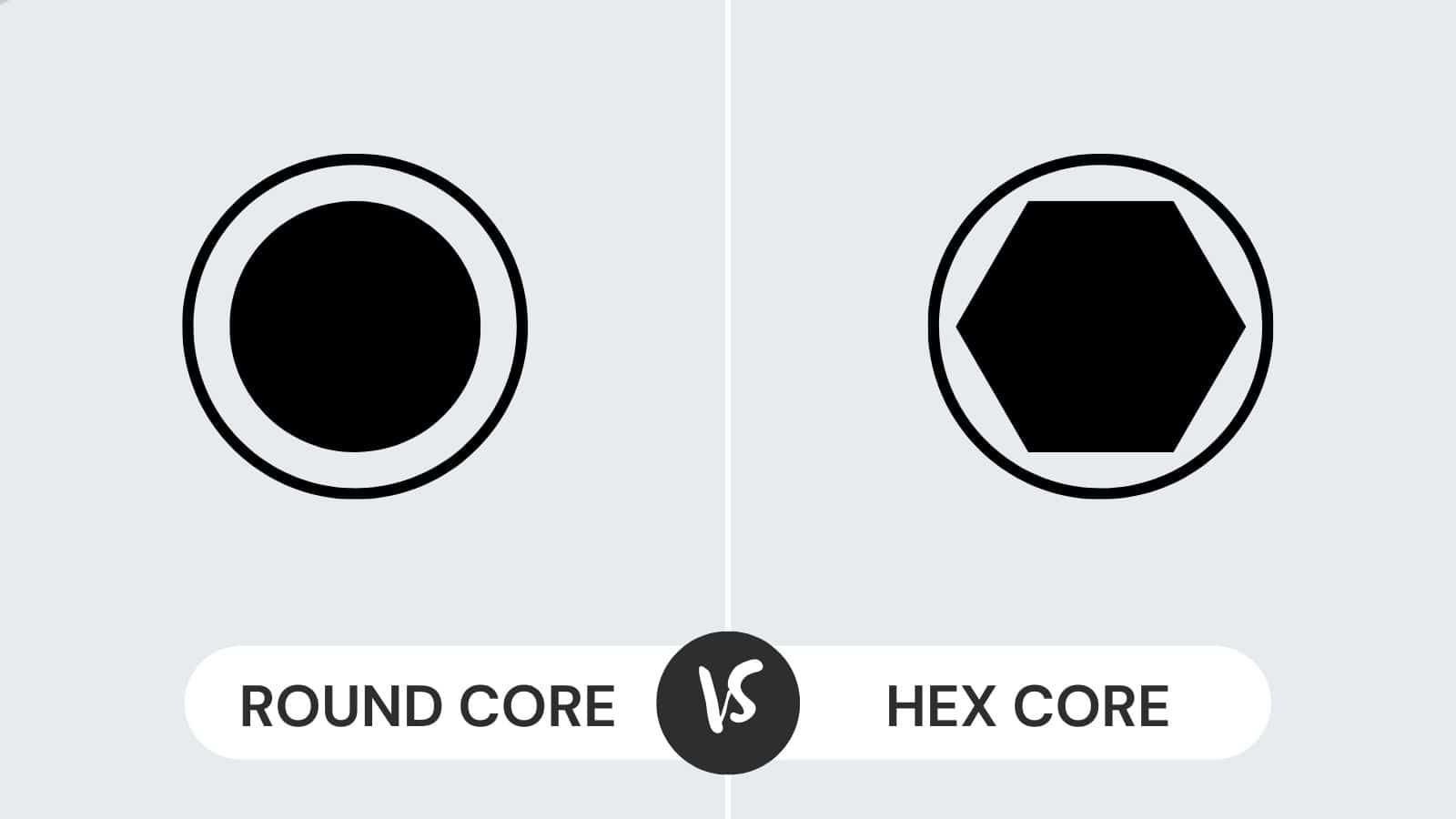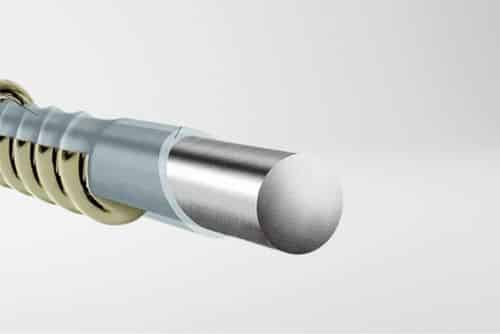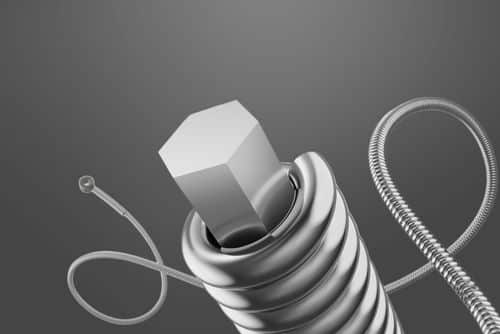
Guitar strings might look ordinary to the uninitiated, but there are a bunch of different things that you should know about when you’re going to buy a new set of strings.
There are subtle differences and nuances that could have a major impact on the way your guitar sounds and plays.
It goes without saying that the guitar strings are one of the most important factors that impacts the sound of your instrument. Since you will have to pick the strings with your finger or a pick, it’s important that you choose the right set .
There are certainly a number of factors that you will have to take into account when comparing different strings.
There are multiple string options that you can choose for the guitar, but round core and hex core strings are two of the most popular and used guitar strings out there.
Both might look same to a newbie, yet they have quite the significant difference with not only the core, but performance as well. That is why, a few things that you must know in order to make the right decision between these two would be:
Round Core vs Hex Core Comparison
| Features | Round Core | Hex Core |
|---|---|---|
| Manufacturing Efficiency | Lower | Higher |
| Tension Difference | None | None |
| Durability | Lower | Higher |
| Flexibility | Higher | Lower |
Round Core
The difference that is most significant to understand between these two is the core. So, you will need to make sure that you are picking the right one. The rounded core strings, also known as vintage core strings, were quite popular in the past.
In fact, these were the original guitar strings at one point in time, even before hex core strings had been invented. The round core is more suited for such softer genres that you might want to play on the guitar.
With the round core, you can enjoy a wide range of genres, including folk, country, and even soft cock.
The round core strings are a bit harder to play and install since they are totally round, and that is something you will need to be careful about.
The round core strings need to be played by a pick, since your fingers might slip on the round core strings and you may find it difficult to keep your composure.
Yet, the round core strings are pretty great to have for acoustics and you will definitely be enjoying the best of tunes that you will be getting on the guitar. In addition to all that, the round core wires are pretty great in terms of durability.
The Core
If you were to cut through a round core string, you’d see that their shape is round (of course!). These strings have a smoother outer edge, which allows the wire to travel around the core, all the while remaining in contact with the outer surface.
This increases the manufacturing costs slightly, but at the very least, what you’re getting is an excellent set of strings that is going to last you for quite a while.
There are still some manufacturers who produce round core strings. Popular names include Martin, DR, and even Pyramid. GHS electric string line, known as Boomers, are wounded on round cores too, which is generally something unheard of in this era.
Performance
Because the density is greater as the winding is always in contact with the rounded core, these strings are generally more robust and durable.
Another thing that you should know is that they are also considerably more flexible, both due to the round core construction.
Tonality
Round core strings are known for their slightly more pronounced bottom end, and their high-end clarity isn’t as much when compared with the hex core strings.
It’s a fantastic choice for use in an electric guitar or in an acoustic guitar, especially if you like to strum.
Their pronounced sound is one of the main reasons why they are still so popular, and some companies, like Martin, still stick with them.
Hex Core
The hex core guitar strings are the more popular choice nowadays. They are made from the same type of materials that you get on the other types of guitar strings, but there is a crucial difference that you will need to understand.
The core has a hexagon like shape instead of being round and that allows you to have more stability and grip on these strings at the same time.
The hex core strings don’t need to be swagged as they give cover wire sharp places to hang on the entire length of the string. The hex core strings are also pretty easy to manufacture and they are even easier to install.
Stainless Steel
Stainless steel strings became popular around the 1970s, and they all featured a hex core. The good thing about these strings is that they have a relatively bright sound, and if your hands get sweaty soon, these are a great choice.
Useful Life
Because of their increased durability and better build quality, these strings are going to last you a while longer when compared with other strings, especially for players with acidic hands.
Feel
Because of their hexagonal core, hex core strings have a slightly stiffer feel, but that’s one of the reasons why they are able to stay in tune for a longer period of time.
More importantly, this makes them a more durable choice when compared with other types of strings, so you don’t have to worry about the strings breaking any time soon.
Popularity
In this day and age, hex core strings are generally the norm. They are commonly used by D’Addario, which is arguably one of the biggest manufacturers of guitar strings.
On top of that, other companies like Elixir and Ernie Ball also favor hex core strings.
Tonality
The manner of construction obviously plays an important role in the way the guitar strings sound. One thing that you should know is that because the outer core is not fully in contact with the inner hex core, the sound produced by these strings is generally brighter.
So, if you want a brighter, sharper tone, you should consider going for hex core strings. The attack is also considerably more pronounced. Simply put, if you’re after a more modern tone, then the hex core strings might be your best choice.
The Bottom Line – Which One Should You Choose?
Hex core strings are the more modern choice when compared with the rounded core ones. If you’re in the market for good quality strings that have a brighter tone, you can’t go wrong with hex core strings.
But, if you want that more vintage vibe, then the round core ones might be a better pick.



I was thinking of a new kind of string called a “Flex-Hex Core String”. It’s a special variation on the Hex Core string that’s formulated to have the same flexibility as a round core which is achieved by using a super thin hex core wire & then making the string “compound wound” like strings for bowed stringed instruments.